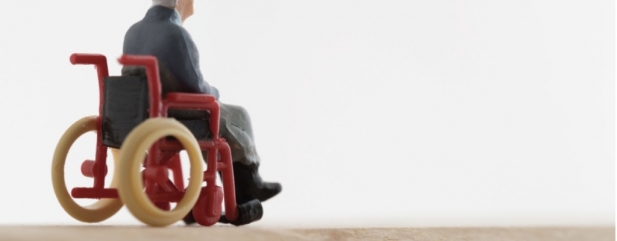Archived article
Please note that tax, investment, pension and ISA rules can change and the information and any views contained in this article may now be inaccurate.
What happens to my pension when I die?

People often talk about leaving their assets for their dependents but the vast majority don’t how their money will be handled on their death or how it will be taxed.
Research by AJ Bell last year found that just 7% of people know how their pension will be dealt with on death, with a quarter saying they didn’t know and half saying they think it will go to their beneficiary. In fact, your pension provider decides who it goes to, taking into account your nominated beneficiaries.
What’s more, just 4% of those questioned by AJ Bell knew how their pension would be taxed on death, with 58% saying they had no idea. This article looks at all the important bits of information to make you better informed.
WHO IS YOUR PENSION LEFT TO?
Many people assume their pension will be covered by their will or that it will automatically go to the person they have stated is their nominated beneficiary. Actually your pension provider has the discretion of who to pass the pension pot on to. This is because of the complicated inheritance tax rules around pensions (more on this later).
Providers will take into account what’s on your beneficiary form, but they must take into account all potential beneficiaries.
Family circumstances change frequently and people don’t update their nominated beneficiaries regularly. It’s important to make sure your beneficiary letter is as up-to-date as possible and that you regularly review it.
A lump sum can be paid to anyone, but the pension income can only be paid to certain dependants, nominees and successors.
A dependant is typically the deceased’s spouse or civil partner, or their child under the age of 23. A nominee is a beneficiary who has been nominated by the deceased on a death benefit nomination. A successor is a beneficiary who has been nominated by a dependant or nominee.
HOW WILL IT BE TAXED?
Pensions are typically free of inheritance tax (IHT). Pension death benefits are exempt from IHT in most cases because your pension provider has discretion around to whom they are paid. The Inheritance Tax Act 1984 explicitly exempts contributions and undrawn funds that remain in a pension scheme.
But exceptions to this apply, such as where the pension provider does not have discretion, meaning that IHT is due.
Another exemption is if someone transfers their pension when they know they have a terminal illness and then dies within two years, the pot could be subject to inheritance tax.
But what about any tax charged once the pot has been passed on? The introduction of the pension freedom rules in April 2015 brought in far greater benefits for passing on wealth. Pensions can be passed on free from tax if the individual dies before the age of 75, as long as the money is passed to the beneficiary (or put in a pension scheme in their name) within two years.
However, any pension pot will usually be subject to tax at the beneficiary’s marginal rate if the individual dies from the age of 75 onwards.
This money can also be subsequently passed on to future generations, with the same rules applying.
One area you need to note is the size of the pot in question. If you have breached the lifetime allowance, which is the maximum you’re allowed to save in your pension over your lifetime, then your family may have to pay a tax charge on the money left behind. The lifetime allowance is currently £1.03m but is rising to £1.055m from April this year.
You also need to consider the point at which you take your 25% tax-free lump sum.
If this money is transferred out of your pension and is still sitting in your bank account when you die, unspent, then it will form part of your estate. This means that inheritance tax might be due on it, if your estate is above the inheritance-tax threshold.
This is true of any withdrawals you’ve made from your pension. This is also true of any money that you’ve withdrawn from your pension, either as income or as a lump sum, even if you’ve already paid income tax on it.
Because pensions are more inheritance-tax-friendly, many people who plan to pass on their wealth will want to exhaust their ISA savings first. This is because ISAs form part of your estate for inheritance tax purposes, unless they are passed on to your spouse, and so may end up being hit with a 40% tax charge.
Example: Passing the pot on
Katy dies at the age of 77, leaving her £350,000 pension pot to her son Barry, who is a basic-rate taxpayer.
He draws some of the pension off and is charged 20% income tax on any money he takes out of the pot.
Barry dies at the age of 73 and £200,000 of the original pension pot remains. This is passed on to his daughter, Jenny, who is a basic-rate taxpayer. She withdraws the entire pot, but because Barry died before the age of 75, she can take this money tax free.
Important information:
These articles are provided by Shares magazine which is published by AJ Bell Media, a part of AJ Bell. Shares is not written by AJ Bell.
Shares is provided for your general information and use and is not a personal recommendation to invest. It is not intended to be relied upon by you in making or not making any investment decisions. The investments referred to in these articles will not be suitable for all investors. If in doubt please seek appropriate independent financial advice.
Investors acting on the information in these articles do so at their own risk and AJ Bell Media and its staff do not accept liability for losses suffered by investors as a result of their investment decisions.
Issue contents
Big News
- News on Vodafone, RELX, GoCompare and more over the past week
- A tale of two founders: Ted Baker and Superdry
- Smithson beats its benchmark in maiden set of results
- What happens next with Brexit and what could it mean for investors?
- New IMI boss hoping to use his Halma-earned growth magic
- Take advantage of price dip in manufacturer Coats

 magazine
magazine










